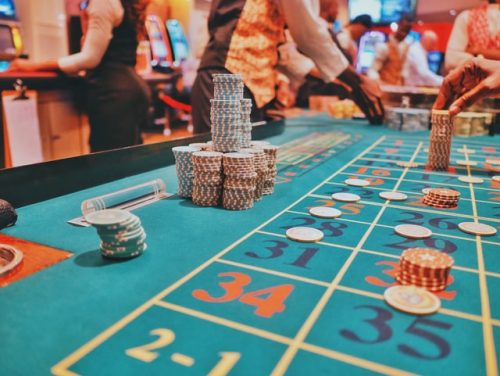What comes to your mind when you hear the word “addiction?” Usually, when you hear this word, you may think of dependency on drugs or alcohol. After all, these addictions plague over 22.5 million Americans annually.
However, addiction doesn’t just pertain to heavy dependence on drugs or alcohol. Some people can also exhibit addictive behaviors toward activities. Gaming and having sex are just some of the common and potentially addictive activities.
Even excessive browsing through endless apps like Facebook and Twitter or e-commerce websites can qualify as addictive behavior.

Sure these activities are indeed enjoyable, with little to no immediate consequences. However, other addictions can also bring immediate problems. You can get addicted to gambling or shopping. These activities entail spending a significant amount of money.
Some people can also become obsessed with their appearance. Thus, they can develop an addiction to exercise, tanning, or plastic surgery. These addictions can then lead to serious physical health conditions.
But generally speaking, behavioral addictions seem milder than substance abuse and addiction. However, these conditions aren’t as foreign to each other as they seem.
A study has even shown glaring similarities between the two. Here are just some of the symptoms of behavioral addictions which are also apparent in substance abuse cases:
- Feeling of euphoria while indulging in the activity
- Withdrawal symptoms
- Developing tolerance and increasing intensity of behavior
- Thinking obsessive thoughts
- Losing the ability to control behavior
And so, at the psychological level, fatal substance abuse and relatively mild behavioral addictions are actually on the same level.
Thus, therapists must dig deep into the psychology of these behaviors to treat addicted patients. They need to look through all known factors. Once they can fully understand why their patients indulge in their activities, they can help shift their mindset.
Addiction may also be a product of stress, pressure, and other mental and physical conditions. For substance abuse, some users turn to drugs for their natural pain-relieving effects. Such a state of high can then lead to dependence, misuse, and addiction.
So, the question is, how can daily and mundane activities like eating and shopping result in addictive behavior?
In this article, you can find the answer to this bugging question. We also listed other frequently asked questions to help you better understand the psychology of addictive behaviors.
What does psychology say about addiction?
Psychology explains that addiction occurs when a person cannot stop doing a pleasurable activity despite its harmful effects on their quality of life and physical well-being.
For example, someone with uncontrollable drinking habits that negatively impact their relationships, work, and health would be considered an alcohol addict. Drugs and gambling are other activities that a person may get addicted to.
What are the psychological theories of addiction?
Some psychological theories of addiction are learning theories, including classical and operant conditioning, social learning theory, cognitive psychology, and self-medication theories.
Classical conditioning occurs because people may learn to associate substances with pleasure, triggering a craving response. An operant condition occurs when they perceive the addictive substance as a positive reinforcement that helps them with their negative emotions.
Social learning theory considers addiction a learned or mimicked behavior; cognitive psychology talks about how the substance impairs memory and function. Lastly, self-medication theories explain why people develop an addiction to help with their pain.
Why is the idea of having an addictive personality harmful?
Addictive personality is a myth that can be harmful as it perpetuates cruel stereotypes and may negatively affect the likelihood of a person seeking rehabilitation for their addiction.
While it is true that people getting rid of addiction may substitute it for another one, it does not necessarily support that they have an addictive personality. Furthermore, there is little research and evidence that support this claim.
Why are things addicting?
Some things or activities are addicting because we learn to associate them with pleasure, making the brain’s reward system active when we see them. Other reasons affecting our addiction are genetics, social network, emotional trauma, and other mental illnesses.
How does addiction hijack the brain?
When we are repeatedly exposed or introduced to an addictive substance or behavior, our nerve cells learn to associate liking to wanting, which leads us to become addicted. So, when we encounter this substance or behavior, we strive to get it to reap the rewards or pleasure.

What is an addictive behavior?
Addictive behavior may refer to continuously seeking the substance or activities that trigger our brain’s reward system despite its negative consequences. It may also mean the reinforcing and rewarding stimulus that affects the development of an addiction.
The following red flags indicate an addictive behavior:
- Having trouble stopping
- Dependence on the substance or action to feel normal
- Social withdrawal
- Repeatedly engaging with the substance or doing the action despite negative impacts on self
- Difficulty focusing on other things except for the addictive substance or action.
What is the addiction pathway?
The addiction pathway is the part of your brain responsible for motivating behavior. People used to refer to this part as the pleasure center, and it is one part of our body that we also share with other animals. Today, it is more commonly known as the brain reward region.
How do I activate my brain reward system?
To activate your brain’s reward system, you must be exposed to a rewarding stimulus that can trigger an increase of dopamine – a neurotransmitter associated with pleasure. And research says that the reward systems are situated near major dopamine pathways. That is why, when we do addictive activities or substances, we feel pleasure.
How do addictive behaviors start?
Addictive behaviors are triggered and started by emotional trauma and abuse, mood disorders, and the immediate social environment.
When people experiencing these things are exposed to pleasurable activities – gaming, gambling, sex, and food, the neurotransmitters in the brain are triggered and released. It becomes a want, making them crave and continuously participate in these activities despite its adverse effects on themselves and their relationships.
Conclusion
Now that you know about the hows and whys of addictive behavior, you can better understand it as a mental health problem. It might not be as fatal as drug or alcohol overuse, but it is just as mentally draining.
Besides, each of the common addictive behaviors also has its consequences. Gambling addiction can lead to bankruptcy, and excessive gaming can lead to loss of productivity. Some of these addictions can even lead to obsessive and risky actions so that you can partake in an activity.

If you know someone who is exhibiting symptoms of behavioral addiction, talk to them about their behavior. Better yet, if you notice an increased dependence or too much risk-taking to partake in an activity, seek professional help.
But if you’re the one experiencing these symptoms, reflect. While addictive behavior can provide you with unexplainable happiness, remember how fleeting such a feeling can be. Don’t wait for your situation to worsen before asking for legitimate help.
Do not be ashamed of whatever your addiction may be. After all, the first step to improvement is to recognize your own shortcomings.
Be accountable for your actions and accept the help you deserve. You can seek counseling and therapy from licensed and certified mental health professionals. There are many types of counseling programs you can try to help yourself out.
You can also practice healthy coping mechanisms as you try to replace your obsessive and addictive nature. Here are just some activities you can try:
- Practice yoga or aerobic exercise
- Listen to music
- Take strolls
- Read books
Most of all, you can seek the help and support of your loved ones. You can ask your family to be frank with you so they can provide you with feedback and constructive criticism. Even just having one friend check up on you and hold you accountable can be beneficial.
Addiction is as much a mental health issue as any other condition. So, don’t beat yourself up because repeatedly blaming yourself won’t get you anywhere. Instead, reflect and take proper action. The more you understand what you’re going through, the more chances of changing for the better.